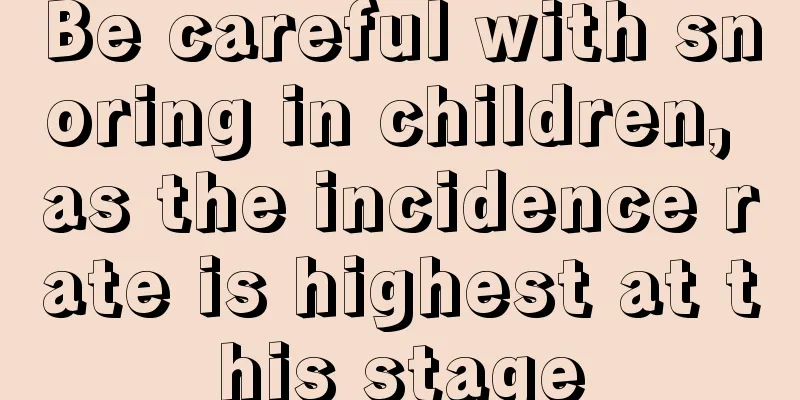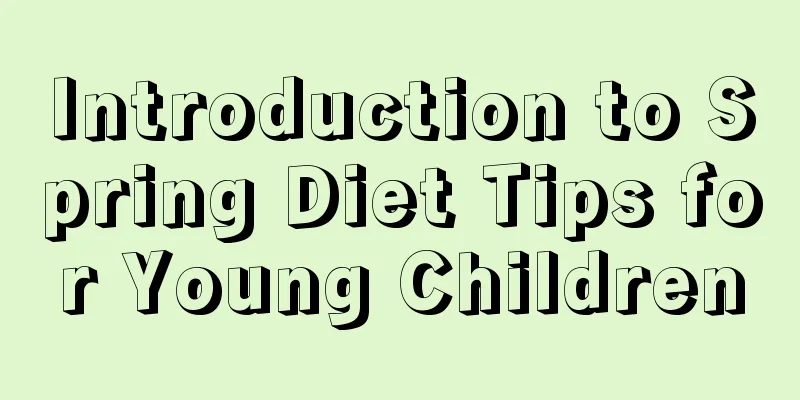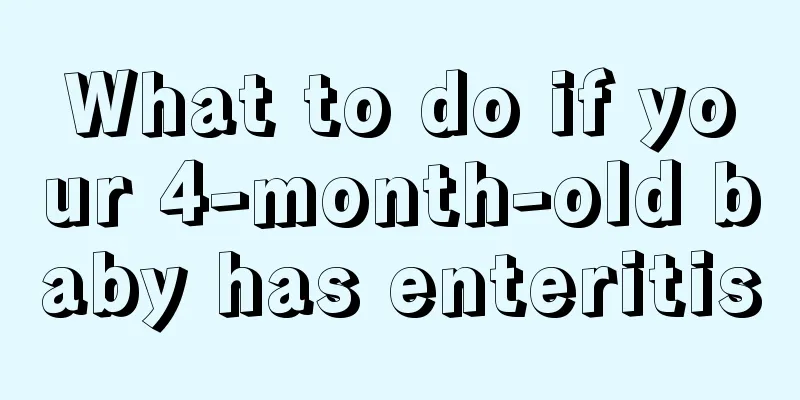What are the clinical symptoms of baby’s abdominal bloating?

|
Mothers often see their babies with bloating. The baby's belly is bloated and it feels like there is a lot of gas in it. The baby also farts frequently. The baby is in a bad mood and does not eat normally. This is most likely a problem with gastrointestinal digestion. Solving this problem requires many aspects, such as dietary adjustments are crucial. So what other symptoms are there for baby bloating? 1. Symptoms of baby's bloating Bloating in babies is a common phenomenon, and it often occurs in babies under 3 months old, and the symptoms often occur in the evening. There are two types of baby's abdominal bloating, namely physiological bloating and pathological bloating. Physiological abdominal distension is a subjective feeling that part of the abdomen or the entire abdomen is bloated, usually accompanied by symptoms such as diarrhea and belching. Babies are young and do not know how to express themselves, but mothers can clearly feel the changes in their babies. Babies are restless and crying, their faces are red, their legs are bent, their abdominal walls are stiff, and they fart frequently. These are all manifestations of physiological abdominal distension in babies. Pathological abdominal distension is an objective examination finding that reveals that part or the entire abdomen is bulging. The general causes of disease-induced abdominal distension are mainly gastrointestinal bloating, ascites caused by various reasons, abdominal tumors, etc. In this case, parents must send their children to the hospital for treatment in time. 2. Baby's physiological abdominal distension symptoms 1. The baby's stomach will make gurgling sounds and the baby will fart frequently. 2. After feeding, the baby's abdomen is often slightly or more obviously bulged, and sometimes there is milk regurgitation, and the baby will be restless and cry. 3. The baby's abdominal wall is stiff, but no lump can be felt. 4. No vomiting, good activity, and normal weight gain. If the baby only has the above symptoms, then it should be physiological abdominal distension. Parents do not need to worry too much. Just adjust the diet, pay attention to daily details, and rub the baby's belly more and the symptoms will gradually ease. 3. Symptoms of pathological abdominal distension in babies 1. Abdominal distension is accompanied by frequent vomiting, shortness of breath, loss of appetite, weight loss, and even fever. 2. There is tenderness in the abdomen, the abdomen is bloated and tight, the abdominal wall is hard, shiny, and red, and something like a lump can be felt in the abdomen. 3. Accompanied by jaundice, white stools, bloody stools, and tarry stools. If your baby has the above symptoms, it is likely to be pathological diarrhea and he needs to be sent to the hospital for diagnosis and treatment immediately. |
<<: How to disinfect and care for the navel of a newborn
>>: Why does my baby’s hair sweat while sleeping?
Recommend
How old does a baby start to grow molars?
The baby has been constantly changing since he ca...
What should I do if my three-year-old baby has a bad mouth?
Parents must be careful when taking care of their...
What to do if your newborn baby has water discharge from his belly button
If a newborn has water flowing out of the belly b...
48 What to do if your child has stomach discomfort and vomits
Now everyone's living conditions are differen...
Can children eat fried scorpions?
Although scorpions look very scary, they are actu...
What calcium tablets are good for children to take when they are changing their teeth?
Calcium supplementation is a very common thing in...
What is the matter with the child breathing heavily?
For every parent, the baby's physical health ...
How to treat congenital malformations in babies?
Everyone knows that pregnant women need to have r...
Causes and treatment of decreased appetite in newborns
There are many reasons for the decreased appetite...
Is it okay to bathe babies twice a day in summer?
It is very hot in summer but we can use air condi...
What is the sleep time of a baby over one month old?
We all know that after the baby is born, he spend...
How to protect three-year-old children from acute gastroenteritis?
Children are still young and have poor immunity, ...
Treatment of patent foramen ovale in infants
Nowadays, cases of patent foramen ovale in babies...
Behavioral habit formation education
Behavioral habits are what parents should focus o...
What changes will occur in your baby during the third month?
The baby's healthy development is very rapid....









